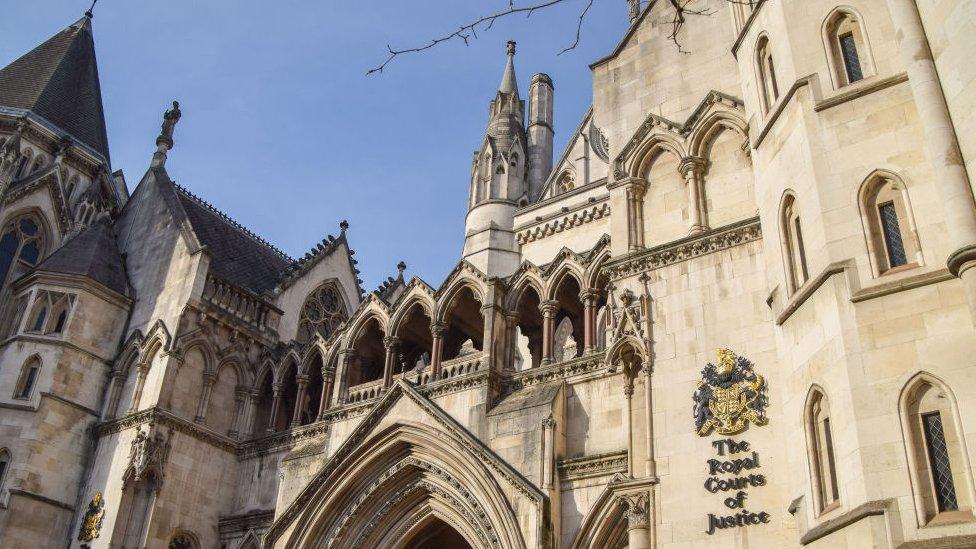Government backs crackdown on spurious legal actions
- Published

Proposals to crack down on spurious legal claims used to silence journalists and other critics have been backed by the government.
Strategic Lawsuits Against Public Participation, known as Slapps, are often used by rich individuals to stop the exposure of wrongdoing.
The new measures would allow judges to dismiss spurious claims before they go to trial.
They would also protect defendants from exorbitant legal costs.
The Strategic Litigation Against Public Participation Bill, which applies to England and Wales, was put forward by Labour MP and former minister Wayne David.
Securing the backing of the government for a private members' bill means it is more likely to become law.
The bill has passed its first Commons hurdle unopposed and will now face further scrutiny from MPs and peers.
During the debate, Mr David said current measures did not go far enough and his proposals sought to "protect freedom of expression for everyone".
"Bullying tactics can include huge, threatening litigation costs and damages and all of the unbearable consequences such as bankruptcy, loss of homes and livelihoods, as well as the emotional distress that entails," he told MPs.
"All of this can cause huge hardship and psychological pressure. Sadly, many people are not able to withstand all of this. So many of the cases are like, if you like, David and Goliath, but it's as if David had no slingshot."
The bill builds on the Economic Crime and Corporate Transparency Act 2023, which focused on Slapps cases involving economic crime such as corruption and embezzlement.
Recent high-profile cases have involved Russian oligarchs and allies of President Vladimir Putin, typically using defamation and privacy laws.
However, research has found the practice is widening, including cases of Slapps being used by abusers to silence victims of sexual harassment and by landlords against tenants who complain about the condition of their home.
The new measures would address Slapps across all types of litigation, including sexual harassment.
Under the proposals, claimants would have to prove they were likely to succeed before a case went to trial.
Normally the losing party in a case must pay all the costs, but the new rules would mean defendants would not have to pay the claimant's costs, unless directed otherwise by a judge.
Justice Secretary Alex Chalk said: "Free speech and the free press are lynchpins of our democracy, and to muzzle people in this way is chilling.
"We want people to feel confident standing up to the corrupt, knowing the law is firmly on their side."
Labour is also supporting the bill, with shadow justice minister Kevin Brennan telling the Commons: "It's a step forward in an ongoing effort to protect freedom of expression and ensure that those who seek to report on wrongdoing can do so without fear of retribution."
Related topics
- Published17 March 2022

- Published2 March 2022
